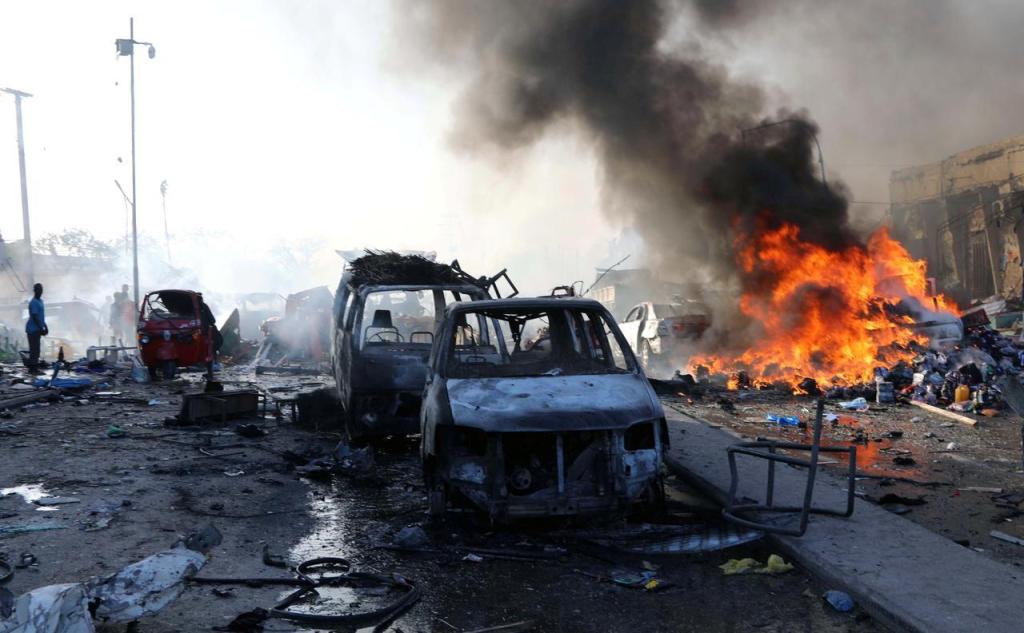Pentagon says terror attacks in Africa increased 300% over last decade

AIR FORCE TIMES|WASHINGTON: Islamic extremism has exploded in Africa despite ongoing efforts by U.S. Africa Command to stifle terrorism on the continent, an August report from the Pentagon revealed.
Conducted by the Africa Center for Strategic Studies, the Pentagon’s premier analysis branch for the region, the report noted a staggering 300 percent increase in militant Islamist violence over the course of the last decade.
More than 6,200 violent events were attributed to terrorist groups in 2022, a 21 percent increase from the previous year, the report noted. Almost 15,000 deaths were linked to the increase in terrorist-related activity.
Nearly 95 percent of the incident surge since 2019 has come from two areas — Somalia and the western Sahel, a semi-arid region crossing northern Africa between the Sahara to the north and tropical savannas to the south.
Both Somalia and the Sahel are actively hosting U.S. troops, but if the aforementioned statistics are any indication, that military presence has not stemmed the violence, bringing into question the effectiveness of U.S. operations in Africa, training or otherwise.
AFRICOM currently has approximately 6,000 U.S. troops on the continent, with the greatest concentrations of U.S. personnel in West Africa and Djibouti. According to documents obtained by Rolling Stone, U.S. special operations troops deployed to 17 African nations in 2021. Naval exercises were also held last year with troops from Mauritius, Madagascar and the Seychelles.
One measure undertaken by AFRICOM to address security concerns in the Sahel is Flintlock, the command’s largest annual special operations exercise. More than 400 service members from over 10 African partner and allied nations join U.S. personnel in the military and law enforcement exercise each year.
When it comes to threats throughout the continent, meanwhile, the greatest number come from al-Shabab, Boko Haram and the Islamic State in the Greater Sahara, according to a recent report by the Africa Center for Strategic Studies. In the Sahel, the Macina Liberation Front — part of the Jama’at Nusrat al Islam wal Muslimeen coalition of extremist groups — was noted as being largely responsible for an attack incident rate that has quadrupled since 2019, according to the report.
In Somalia, U.S. troops have experienced a surge in direct involvement in counterterrorism operations against al-Shabab terrorists.
On Oct. 1, U.S. forces took out Abdullahi Nadir — a man Somali leaders called “one of the most important members of al-Shabab” — in an attack coordinated with the Somali National Army. This most recent assault followed a series of other strikes conducted throughout the summer, one of which was responsible for killing 27 militants.
“The defensive strikes allowed the Somali National Army and African Union Transition Mission in Somalia forces to regain the initiative and continue the operation to disrupt al-Shabaab in the Hiraan region of central Somalia,” AFRICOM officials said of the September strike. “This operation is the largest combined Somali and ATMIS offensive operation in five years.”
Although the Biden administration reinstated the U.S. mission in Somalia just this year, a decision that followed former president Donald Trump’s January 2021 troop withdrawal, AFRICOM leaders are not necessarily hopeful that more funds will be spent on combating extremism throughout the region.
“I would say you’re not going to see a very significant change [in funding],” Army Gen. Stephen Townsend, the previous head of AFRICOM, told Military Times in July. “We’re still what our department refers to as the ‘economy-of-force theater’ ― also in the current lexicon, a ‘posture-limited theater,’ which means we’re still not going to get very many resources, right?”
Current national security postures indicate the war in Ukraine and threats from military powers such as China, Iran, Russia and North Korea may continue to pull funding and focus away from counterterrorism efforts in places like the Sahel.
However, Townsend’s replacement, Marine Gen. Michael Langley, told the Senate Armed Services Committee during his July 21 confirmation hearing that he sees terrorism in Africa as “more of a problem today” than ever before.